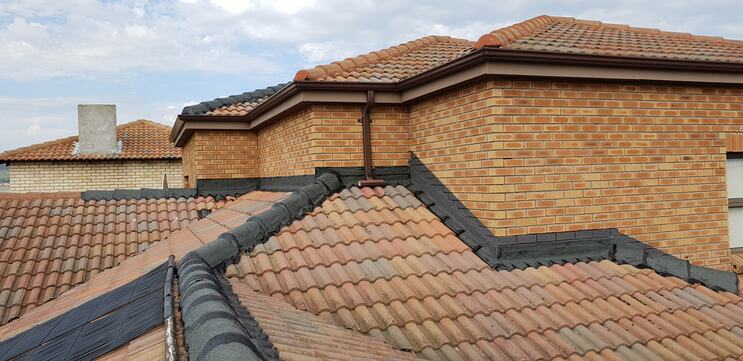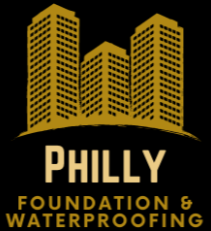Is Your Roof Ready for the Rain? Top Waterproofing Solutions You Need
Protect Your Home with Effective Roof Waterproofing: Expert Tips for Preventing Leaks and Damage
When the rainy season hits, your roof becomes your home’s first line of defense against water damage. Unfortunately, without proper roof waterproofing, even the smallest vulnerabilities can lead to costly roof repair. Whether you have a flat roof or a traditional sloped roof, ensuring your roof is equipped to handle heavy rain is essential. In this guide, we will explore the best waterproofing solutions to keep your roof and home dry, as well as what to consider when choosing the right roofing materials for your needs.

Understanding Roof Waterproofing
Waterproofing your roof involves applying protective materials that prevent water from seeping through. It’s especially important for areas like Philadelphia roof, where weather conditions fluctuate throughout the year, putting a lot of stress on your roof. Whether you’re dealing with a flat roof, a commercial roof, or a more traditional roof types, ensuring your roof is watertight can prevent roof leaks and other major structural problems.
Why Roof Waterproofing Matters
A leaky roof isn’t just an inconvenience—it’s a serious problem that can lead to expensive roof repair. Water damage can rot the underlying structure, lead to mold growth, and even cause electrical hazards. In areas prone to frequent rain, such as roofing Philadelphia, it’s critical to stay proactive. Waterproofing solutions can protect your home, prolong the life of your roof, and avoid the need for extensive roof leakage repair.
Top Waterproofing Solutions for Your Roof
Let’s look at some effective solutions you can apply to ensure your roof is ready for the rain.
1. Roof Sealant
Roof sealant is a liquid solution applied directly to the roof’s surface to form a protective layer. It’s a great option for a wide range of roof types, especially flat roof systems, which are more vulnerable to pooling water. A properly applied sealant can help close gaps, cracks, or other weak points that might lead to leaks.
There are different types of roof sealant, including silicone, acrylic, and polyurethane. Silicone sealants are especially effective on flat surfaces and are resistant to UV rays, which means they won’t break down easily in the sun.
2. Roofing Tar
An old yet effective method, roofing tar is often used for flat roof repair and sealing leaks. This viscous material is applied directly to the roof to create a waterproof barrier. It’s commonly used on commercial roofing and residential flat roofs alike. Though roofing tar can withstand harsh weather conditions, it’s important to apply it evenly to ensure complete coverage.
Roofing tar is often used in roof repair Philadelphia for both flat and sloped roofs, though it requires regular maintenance to remain effective over time.
3. Membrane Waterproofing
For flat roof materials, membrane waterproofing is one of the best solutions. It involves applying a waterproof membrane, typically made of rubber or synthetic materials, directly onto the roof surface. This solution is excellent for long-term protection, especially for commercial roofing.
Some popular membrane types include EPDM (Ethylene Propylene Diene Monomer) and TPO (Thermoplastic Polyolefin). These are flexible, durable, and resistant to extreme weather conditions, making them a popular choice for roofing companies in Philadelphia PA and other areas prone to varying temperatures.
4. Flat Roof Waterproofing Coatings
Flat roofs are especially susceptible to water pooling, which can lead to leaks. Applying a waterproof coating designed for flat roof surfaces can add an extra layer of protection. Acrylic-based coatings, for example, are reflective and can help reduce the roof’s surface temperature, reducing wear and tear.
Roofing Philly contractors often recommend waterproof coatings for flat roofs because they are easy to apply and provide long-term durability. With proper maintenance, they can extend the life of your roof significantly.
5. Bituminous Waterproofing
For those looking for a cost-effective solution, bituminous waterproofing can be a good option. It’s made from bitumen, a material used in asphalt, and is applied in layers to create a solid, waterproof surface. This method is common in roof repair Philadelphia and is favored for its affordability and durability.
Bituminous waterproofing is particularly popular in roof and repair work for Philadelphia roof systems, especially those that need robust protection from frequent rain and heavy winds.
Common Causes of Roof Leaks
Understanding the causes of roof leaks can help you better prepare your roof for waterproofing. The most common culprits include:
- Damaged roofing materials: Over time, shingles, tiles, and other materials can crack or become displaced, allowing water to seep in.
- Poor drainage on flat roofs: If your flat roof doesn’t have an efficient drainage system, water will pool, increasing the risk of leaks.
- Clogged gutters: When gutters are blocked, water doesn’t drain away properly, leading to overflow and roof leakage.
- Flashing failure: Flashing is the metal material used to seal seams around chimneys, vents, and skylights. When flashing deteriorates, it leaves gaps where water can enter.
Signs You Need Roof Waterproofing
It’s not always easy to tell when your roof needs waterproofing, but some telltale signs include:
- Water stains on ceilings or walls: This is often one of the first signs of a roof leak.
- Dampness or mold in the attic: If moisture is seeping into your attic, it’s likely your roof isn’t properly sealed.
- Visible cracks or damage: Check your roof regularly for cracks, especially around areas where different sections of the roof meet.
- Sagging roof sections: This could indicate that water has accumulated, and the roof structure is being compromised.
If you notice any of these issues, it’s time to contact a professional to assess the damage and recommend the right
waterproofing solution.
Choosing the Right Waterproofing Solution
When selecting a waterproofing method for your roof, there are several factors to consider:
- Roof type: Not all waterproofing solutions are suitable for all roof types. Flat roof materials and sloped roofs require different approaches.
- Weather conditions: In regions with heavy rainfall, such as roofing Philadelphia, more robust waterproofing solutions, such as membranes or bituminous coatings, are often recommended.
- Cost: Some waterproofing methods, such as membrane waterproofing, are more expensive than others, like roofing tar. However, the investment may pay off in the long term by preventing frequent roof leakage repair.
- Maintenance: Some waterproofing solutions require more regular maintenance. For example, roofing tar may need reapplication more frequently than membrane systems.
Working with a Roofing Company
While DIY waterproofing solutions can be tempting, especially for minor repairs, it’s best to work with a roofing company Philadelphia professionals for more complex or large-scale jobs. A roofing company Philadelphia will have the expertise to assess your roof’s specific needs and apply the appropriate materials. Many roofing companies in Philadelphia PA offer comprehensive waterproofing services for both residential and commercial roofing systems, ensuring that your roof is fully protected from rain.
Conclusion
Waterproofing your roof is essential for preventing leaks and costly damage, especially in regions like roofing Philadelphia PA, where weather conditions can be unpredictable. Whether you have a flat roof or a traditional sloped roof, choosing the right waterproofing solution is key to maintaining your roof’s integrity for years to come. From roof sealant to roofing tar and membrane systems, there’s a variety of options available to suit different roof types and needs.
By staying proactive and investing in roof waterproofing, you can avoid the hassle of roof leakage repair near me and ensure your home stays dry, no matter how heavy the rain. If you’re uncertain which solution is best for your roof, consider consulting a
roofing philly expert
to guide you through the process and provide the most effective protection.
Protect Your Investment from Structural Damage, Water & Mold Serving the Tri-Sate Area
PA License #PAHIC169133
DE License #2022707501
NJ License #13VH12234100
Hours of Operation
Mon to Fri 7am to 7pm
Sun to Sun: 7am - 7pm
©Philadelphia Foundation Repair & Waterproofing

